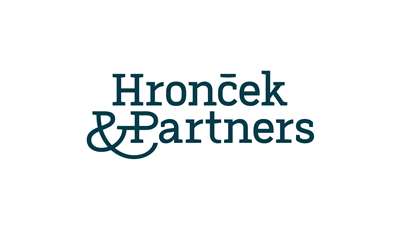Act No. 315/2016 Coll. on the Register of Public Sector Partners and on Amendments to Certain Acts (hereinafter referred to as the "RPVS Act") has undergone another major change in content, which primarily responds to the needs of practical application, whether on the part of public sector partners or authorized persons. The main objective of the amendment to the RPVS Act was to reduce the administrative burden on public sector partners and to define terms more precisely in order to bring greater legal certainty and eliminate ambiguities in practice. The substantive part of the RPVS Act affected by the amendment entered into force on September 1, 2019. The remaining provisions of the RPVS Act affected by the amendment entered into force on November 1, 2019, namely Articles I(19) to (21), (24), (26), (32) and (49) of the amendment. The above-mentioned amendment to the RPVS Act introduced several significant changes that affect not only the activities of the authorized person, but also, and above all, public sector partners and the determination of the final beneficiaries (hereinafter referred to as "KUV").

Definition of senior management
A significant change, which was reflected primarily in the enormous administrative burden on public sector partners, is the definition of the term senior management or its member. The amendment to the RPVS Act narrowed the definition of a member of senior management, meaning that only members of a company's statutory body will be considered KUVs entered in the register of public sector partners (hereinafter referred to as "RPVS"). Before the amendment, a proxy or senior manager was automatically considered a member of senior management. or senior managers were also automatically considered members of senior management). The main purpose of this narrowing of entities was to eliminate the unnecessary administrative burden that was contrary to the meaning of the RPVS Act and related to the registration of these entities or KUV in the RPVS.
The amendment also introduces an important obligation for the authorized person of the public sector partner to ensure that the registered data on members of senior management are brought into line with the amendment to the RPVS Act within the required time limit, i.e. by 29 February 2020 at the latest.
It is not mandatory to state the permanent residence of the KUV
The amendment to the RPVS Act also introduced the option of stating the registered office or place of business of the PVS instead of the permanent residence of the KUV. However, if this right is exercised, there must be objective circumstances justifying that the disclosure of data on the permanent residence of the KUV may jeopardize his or her safety, or interfere with their right to protection of personality, or may endanger the safety of persons close to them and interfere with the rights to protection of personality of persons close to them.
The amendment to the RPVS Act thus responded to the importance of and protection of the personal data of KUVs and persons close to them.
Material corrective measure
The amendment to the RPVS Act is also reflected in the provisions on the imposition of sanctions, which also include a so-called material corrective measure. The significance of this institution lies in the imposition of sanctions for violations of the provisions of the RPVS Act. If the court finds that there has been a violation of the provisions of the RPVS Act, but the manner of the violation, its consequences, circumstances, degree of fault, and seriousness of the violation are negligible, the court will find the party guilty but will not impose any sanctions in view of the above circumstances.
Introduction of a disqualification period
The amendment to the RPVS Act introduces a period during which a public sector partner cannot re-register in the RPVS after being removed from the RPVS by official duty.
This is a period of two years, which begins to run from the moment of the public sector partner's removal from the RPVS by official duty or from the date of the registering authority's decision on the removal of the public sector partner from the RPVS becoming final.
Under the legal status that was in force until August 31, 2019, a public sector partner deleted from the RPVS could be re-registered in the RPVS on the very next day. However, the disqualification period introduced by the amendment prevented such illogical conduct.
The above two-year ban on re-registration in the Register does not apply to voluntary deletions from the Register.
Liability of the statutory body for damage
The amendment to the RPVS Act also reflects the liability of members of the statutory body for damage.
The legal situation valid until August 31, 2019, was that in the event of a breach of obligations under the RPVS Act or the imposition of a fine on the statutory body, each member of the statutory body was fined separately. However, the amendment to the RPVS Act introduced a change defining that the fine is imposed on the statutory body as a whole, i.e., joint and several liability is introduced, and therefore the members of the statutory body are jointly and severally liable.
The amount of the fine remains unchanged – from €10,000 to €100,000.
Verification of the identification of the ultimate beneficiary
The amendment to the RPVS Act directly introduces and defines the date by which the identification of the KUV partner of the public sector must be verified, namely 31 December.
This is primarily to harmonize and unify the activities of authorized persons, reflecting the chaotic and unregulated situation that existed prior to the amendment to the RPVS Act, when no specific date or time period was set for these activities.
The amendment stipulates that the verification of the identification of public sector KUV partners as of December 31 must be carried out by February 28 at the latest.
The authorized person may now verify the identification of KUV at any time on a voluntary basis, i.e. even outside the verification events provided for in the RPVS Act.
New rules for determining the value of contract performance
The amendment to the RPVS Act also laid down new rules for determining the value of contract performance. Key factors for determining the value of contract performance include, for example, the conditions for calculating its value excluding VAT; when determining its amount, contractual penalties are not included in its value; in the case of multiple co-owners, the performance is apportioned according to the size of their shares, etc.
It is also essential to determine the limit of the value of performance under the contract, according to which registration in the RPVS is mandatory if the public sector partner receives a single performance exceeding EUR 100,000 in a single calendar year or in several partial or recurring performances exceeding EUR 250,000, but not within a single calendar year, but during the entire contractual relationship. or repeated payments exceeding EUR 250,000, but not within a single calendar year, but over the entire duration of the contractual relationship.
